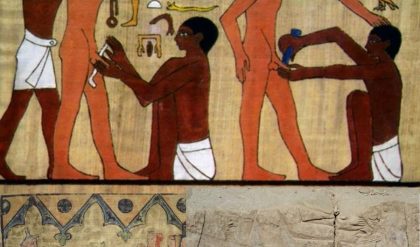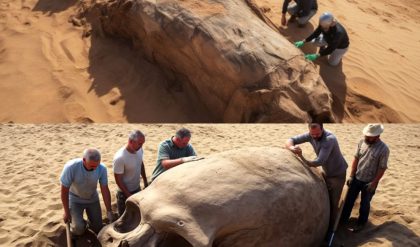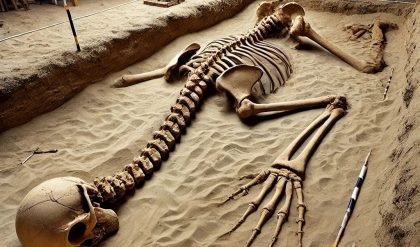In a startling archaeological discovery, researchers have uncovered evidence suggesting that human sacrifice was a part of ancient rituals surrounding the last meals of individuals from 2,400 years ago. This finding, stemming from excavations in a burial site, sheds light on the darker aspects of life in ancient civilizations and prompts a reevaluation of cultural practices.
The Discovery
The burial site, located in a region known for its rich historical context, yielded the remains of a man believed to have lived during a period characterized by significant sociopolitical upheaval. Alongside the skeletal remains, archaeologists found remnants of food, which were meticulously analyzed for clues about the man’s final hours.
Among the remains were signs of unusual culinary practices, including the presence of animal bones that were not typically consumed during the time. More intriguingly, analysis revealed the presence of human remains mixed in with the last meal, suggesting a ritualistic element that points to human sacrifice.

Cultural Context
Anthropologists believe that the findings reflect a culture that valued human sacrifice as a means of appeasing deities or securing favor in times of distress. Such practices were not uncommon in ancient civilizations, where the belief in the spiritual power of sacrifice could influence societal stability.
Historical texts from the same era recount tales of sacrifices made during times of famine or war, with the belief that these acts could restore balance or bring about prosperity. The discovery of this man’s last meal serves as a tangible connection to these narratives, illustrating the lengths to which people would go to seek divine intervention.
Scientific Analysis
Researchers employed advanced techniques to study the chemical composition of the food remains, uncovering traces of specific compounds that indicate ritualistic preparation. The presence of certain herbs and spices, believed to have been used in sacrificial ceremonies, reinforces the notion that this meal was not merely a sustenance choice but part of a larger ritualistic practice.
Additionally, forensic examinations of the skeletal remains provide insight into the man’s health and lifestyle. Evidence of malnutrition and injuries suggests he may have faced challenges that contributed to the decision for sacrifice, highlighting the interplay between individual suffering and societal beliefs.
Ethical Implications
As the implications of this discovery unfold, discussions surrounding the ethics of human sacrifice and its representation in historical narratives come to the forefront. Understanding the motivations behind such practices requires a nuanced approach, recognizing the complex social and religious frameworks that governed ancient lives.
While modern perspectives may view human sacrifice as barbaric, it’s essential to contextualize these actions within the beliefs and values of the time. Scholars emphasize the importance of approaching such findings with sensitivity, acknowledging the cultural significance they held for those who lived in that era.
The Broader Impact
This discovery not only enriches our understanding of ancient cultures but also prompts reflection on humanity’s relationship with mortality and the sacred. The notion of sacrifice—whether human or animal—continues to resonate in various forms across cultures today, often manifesting in rituals that seek to honor the past.
As researchers continue to analyze the findings, this 2,400-year-old man’s story serves as a reminder of the complexities of human existence, the search for meaning, and the lengths to which societies will go in their quest for understanding and connection with the divine.
In unearthing these dark secrets, we gain a deeper appreciation for the intricacies of ancient life and the haunting echoes that still influence contemporary beliefs and practices. The lessons from the past may guide us in navigating our own understanding of sacrifice, community, and the mysteries of existence.





